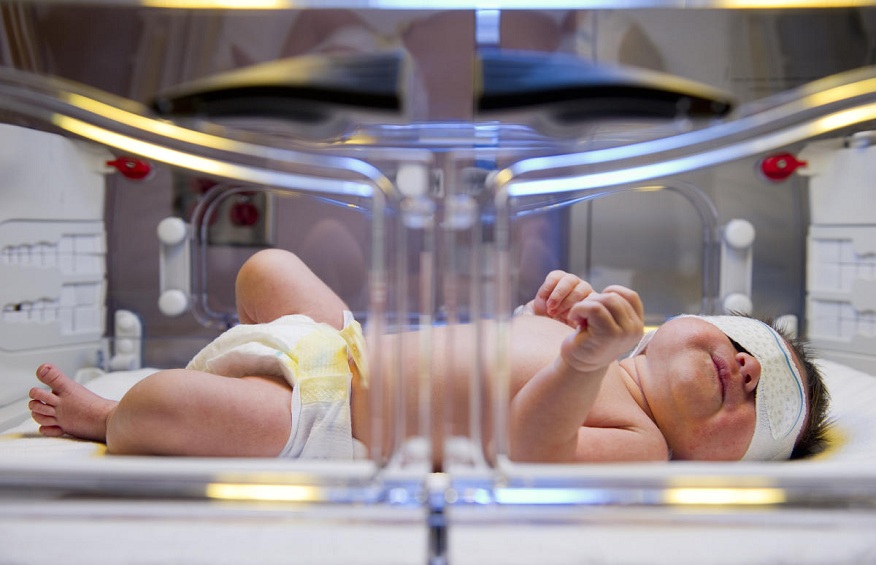Around 80% of babies who have a premature delivery develop jaundice in the first week after their birth. However, jaundice is often harmless in newborn babies. It leads to yellowing of the whites of the eyes and the skin. Here is all you need to know about neonatal jaundice.
Signs of Jaundice in Newborns
Yellowing of the skin can be harder to notice in Indian complexion. So, it’s better to look for yellowing of the soles of their feet or the palms of their hands. Other symptoms of jaundice in newborns usually are:
Pale-coloured poo (instead of yellow)
Dark, yellow urine (instead of colourless)
The signs generally develop within 48 hours after childbirth and improve without treatment by the time the newborn is roughly 2 weeks old. He will be examined for signs of the disease within 72 hours of birth. This is one of the newborn physical examinations.
If your newborn has symptoms of jaundice after this time, contact a reputed paediatrician or child specialist at the earliest.
Causes of Jaundice in Newborns
Jaundice happens due to the accumulation of bilirubin in the blood. This yellow substance is created when RBCs (carrying oxygen around one’s body) get broken down.
Jaundice commonly takes place in newborns since they have a high count of RBCs in the blood which frequently get broken down and substituted.
Besides, the liver of a newborn is not completely developed. Therefore, it can’t adequately eliminate bilirubin from the blood.
Within 2 weeks after the baby is born, his liver can more effectively remove bilirubin. Hence, jaundice usually improves by itself by this time without involving major risks.
In some cases, newborn jaundice is a symptom of an underlying health problem. This generally happens if a neonate develops jaundice within the first day after birth.
Treating Jaundice in Newborns
Treatment for neonatal jaundice is generally not required since the signs often go away within 10-14 days. Only in rare cases, symptoms of newborn jaundice last longer.
Generally, treatment is recommended solely if a very high amount of bilirubin is found in a newborn’s blood after tests. That’s because there is only a minor risk of bilirubin to damage the brain by passing into it.
The following treatments can be essentially done in a children’s hospital to lower the baby’s bilirubin levels as fast as possible:
Phototherapy: It’s a special kind of light that is shone on the skin. This helps change the bilirubin into a form that the liver can break more easily.
Exchange Transfusion: It involves collecting the baby’s blood with the help of a catheter (tube) placed in the blood vessels. Then it is substituted with blood from a matching donor. Babies usually respond well to neonatal jaundice treatment and can return home after a few days.
If your baby has a high percentage of bilirubin in the blood but is not treated, their brain could permanently get damaged. Therefore, it’s important to get him treated at a renowned maternity and children’s hospital as soon as possible.




